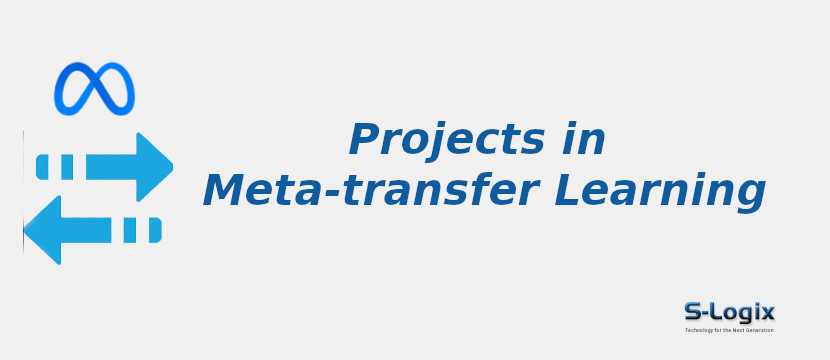Project Background:
The project in meta-transfer learning stems from the necessity to develop machine learning models that can efficiently adapt to new tasks and domains with limited labeled data. Traditional machine-learning approaches often struggle when acquiring task-specific data is challenging or impractical. Meta-transfer learning addresses this limitation by leveraging knowledge gained from diverse tasks during meta-training, enabling models to generalize effectively to new and unseen tasks. It also reflects the increasing demand for adaptable artificial intelligence systems in real-world applications. This project aims to contribute to the advancements in meta-transfer learning by exploring novel algorithms, addressing key challenges, and unlocking the potential for broader applications in dynamic and evolving environments that underscore the significance of enhancing adaptability, efficiency, and generalization capabilities across diverse tasks and domains.
Problem Statement
- Meta-transfer learning addresses issues by training models on diverse tasks during meta-training, aiming to enhance their ability to generalize and quickly adapt to novel tasks during meta-testing.
-
However, challenges persist, including the need for effective strategies to handle task and domain heterogeneity, limited model capacity, and the efficient utilization of small amounts of labeled data during adaptation.
-
Additionally, ensuring stability and robustness in the meta-training process, especially across various tasks and domains, remains a crucial problem.
-
It primarily focuses on developing solutions to these challenges, aiming to advance the capabilities of meta-transfer Learning and promote its practical applicability in various real-world scenarios.
Aim and Objectives
- This project aims to enhance the adaptability and generalization capabilities by developing advanced meta-transfer learning algorithms.
-
Develop novel meta-transfer learning algorithms that efficiently leverage knowledge from diverse tasks during meta-training.
-
Address challenges related to task and domain heterogeneity, limited model capacity, and data efficiency in meta-transfer learning.
-
Explore methods to improve stability and robustness in the meta-training process, ensuring consistent performance across various tasks and domains.
-
Investigate the application of meta-transfer Learning in specific domains, such as medical imaging or autonomous systems, to showcase its practical effectiveness.
-
Extend meta-transfer learning techniques to cross-modal scenarios, enabling effective knowledge transfer across different data modalities.
Contributions to Meta-transfer Learning
- Introducing innovative meta-transfer learning algorithms to address specific challenges like task domain heterogeneity, limited data scenarios, and dynamic adaptation needs.
- Introducing methodologies that incorporate uncertainty modeling allows models to quantify uncertainty and make informed decisions in uncertain or novel situations.
- Proposing strategies to improve the efficiency of few-shot Learning ensures models rapidly adapt to new tasks with minimal labeled data.
-
Pioneering research on adaptive meta-transfer learning approaches that dynamically adjust the meta-learning process based on task or domain characteristics, enhancing adaptability to evolving environments.
- Demonstrating the practical implications through successful applications in medical imaging, autonomous vehicles, and others where adaptability to diverse tasks is critical.
- Contributing to developing models that exhibit superior generalization capabilities across diverse domains, enabling effective knowledge transfer and adaptation to new scenarios.
Deep Learning Algorithms for Meta-Transfer Learning
- Model-Agnostic Meta-Learning (MAML)
-
Repeated Training for Meta-Learning (Reptile)
-
Prototypical Networks
-
Matching Networks
-
Memory-Augmented Neural Networks (MANN)
-
Meta-Learning with Neural Task Embeddings (MetaNets)
Datasets for Meta-Transfer Learning
- MiniImagenet
-
Omniglot
-
Meta-Dataset
-
CIFAR-FS (CIFAR Few-Shot)
-
Tiered-Imagenet
-
DomainNet
-
Traffic Sign Datasets
-
Few-Shot Object Detection Dataset (FSOD)
Performance Metrics for Meta-Transfer Learning
- Accuracy
-
Precision
-
Recall
-
F1 Score
-
Mean Average Precision
-
Cross-Domain Accuracy
-
Generalization Error
-
Task Adaptation Speed
-
Area Under the Curve (AUC)
Software Tools and Technologies
Operating System: Ubuntu 18.04 LTS 64bit / Windows 10
Development Tools: Anaconda3, Spyder 5.0, Jupyter Notebook
Language Version: Python 3.9
Python Libraries:
1. Python ML Libraries:
- Scikit-Learn
- Numpy
- Pandas
- Matplotlib
- Seaborn
- Docker
- MLflow
2. Deep Learning Frameworks:
- Keras
- TensorFlow
- PyTorch
